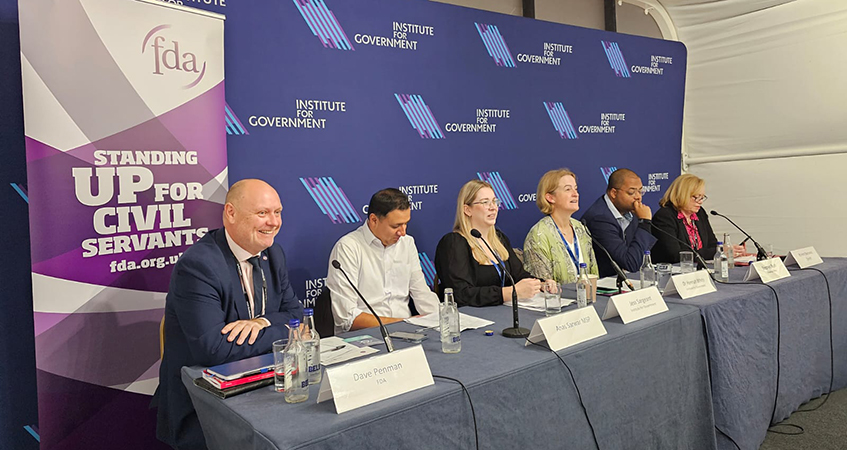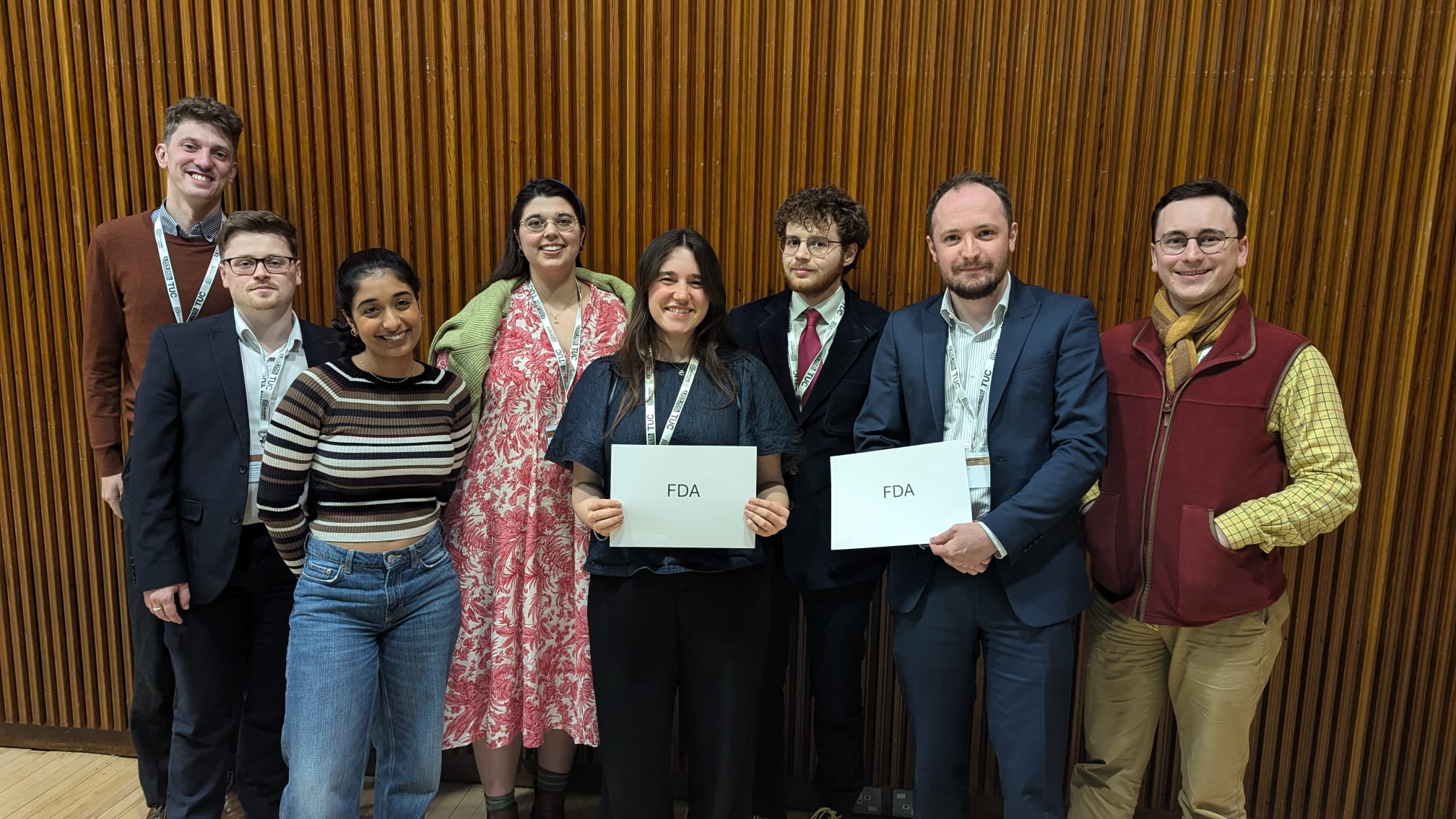FDA at Labour Party conference: Can a Labour government deliver constitutional reform?

In partnership with the Institute for Government (IfG), the FDA hosted a fringe event at this year’s Labour Party conference titled ‘Can a Labour government deliver constitutional reform?’.
The IfG’s Dr Hannah White chaired the discussion, which ranged from Labour’s proposed Integrity and Ethics Commission to what devolution would look like under a Labour government.
FDA General Secretary Dave Penman was joined on the panel by Anas Sawar, Leader of Scottish Labour, Jess Sargeant, Associate Director at Institute for Government, Stephen Bush, Associate Editor at the FT, and Baroness Smith, Shadow Leader of the House of Lords.
Dr Hannah White introduced the topic of reform by suggesting that “if Labour wins the next election, then it seems that big constitutional change could be on the horizon”.
“The party has supported plans to replace the House of Lords with an assembly of the nations and regions to embark on radical devolution in England and set up a new Integrity and Ethics Commission,” she explained.
FDA General Secretary Dave Penman told attendees that the union “fully supports” proposals to introduce a new Integrity and Ethics Commission.
He reflected that “it’s no secret that there have been challenges for the civil service and their relationship with ministers of late” and believes there is a benefit to regulating the conduct of ministers and potentially putting this on a statutory footing.
Responding to a question on “bad faith actors” in politics and government, Penman stressed that “an independent process for dealing with individual misconduct is really important” because “politics always plays too much of a role if decisions are ultimately made by the Prime Minister”.
When asked about the need to “reset the relationship” between ministers and civil servants, he said that ministers in any new government have to think about how they want to work with civil servants.
“Civil servants come into public service, just like politicians do, to change the world,” he said. “They’re desperate to improve the lives of citizens and so I think Labour will, if they win the next election, inherit a civil service that is desperate for stability, desperate for clear political direction, and also desperate to effect change.”
Penman said that civil servants are “desperate to serve ministers, regardless of political colour” but good relationships are built by clear ministerial leadership and direction.
“I’ve talked to civil servants who’ve talked about ministers who do not necessarily have the best reputation publicly, but they’ll say they’re really good ministers because they give clear direction,” he added. “You may disagree with what they’re suggesting, but actually they’re very clear about what they’re doing. And I think that’s going to be the challenge for Labour. It’s not that the institutions in terms of civil service will be resistant to change or there won’t be an ability to effect change. It will be, does a new Labour government have the clarity of its policies and what it wants to achieve? Do they really understand what that means to deliver any kind of policy change and do that effectively and quickly? And I think that will be the challenge for Labour about their understanding and experience of making government work, rather than any issue about an enthusiasm or the skill set or the ability within civil service.”
On the subject of devolution, the FDA General Secretary suggested that one of the difficulties has been “the disconnect between governments”. He suggested that a change in approach can’t be down to individual ministers, it requires “institutional change”.
“I think the challenge for the civil service and the challenge for any new government is going to be how you build institutions that work and can survive the competing political interests that will inevitably be there when you have governments of different colours, or indeed potentially even governments of the same colour?”
The first of the FDA’s joint fringe events with IfG took place at the Conservative Party Conference. FDA Assistant General Secretary Amy Leversidge and the panel discussed the role of a permanent and impartial civil service, the introduction of a fully independent complaints process in Parliament, and devolution.
Related News
-

Changing the culture
HM Chief Inspector Sir Martyn Oliver sat down for an ‘in conversation’ event with FDA General Secretary Dave Penman, discussing the pace of change in Ofsted, challenging perceptions and tackling the long hours culture in Education.
-

FDA attends TUC Young Workers’ 2025
This March, an FDA delegation attended the annual TUC Young Workers’ Conference in Congress House, London.
-

FDA celebrates Women’s History Month 2025 with panel event
To celebrate Women’s History Month and International Women’s Day 2025 the FDA hosted a panel event looking at the history of women in the civil service and within the trade union movement.